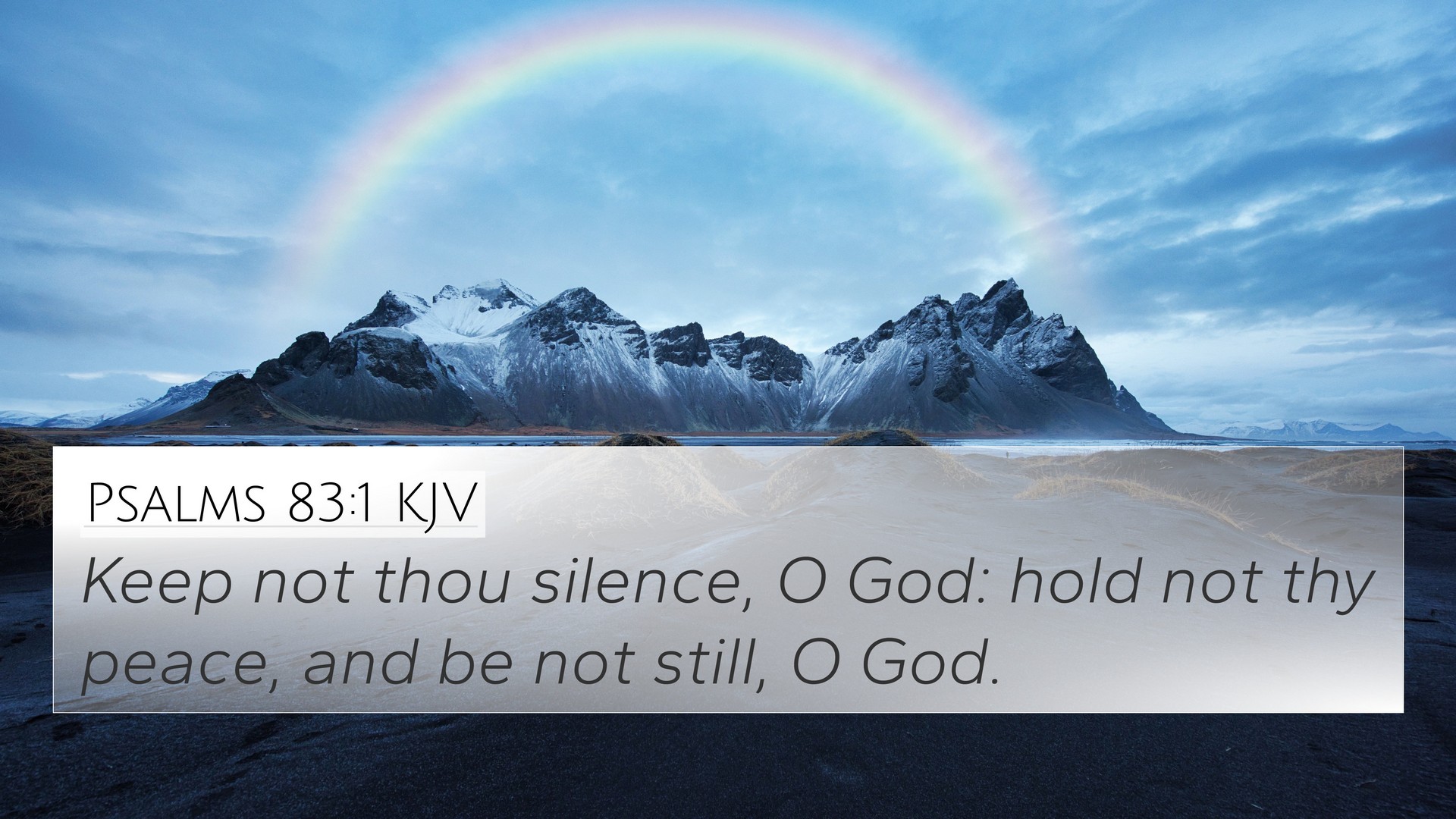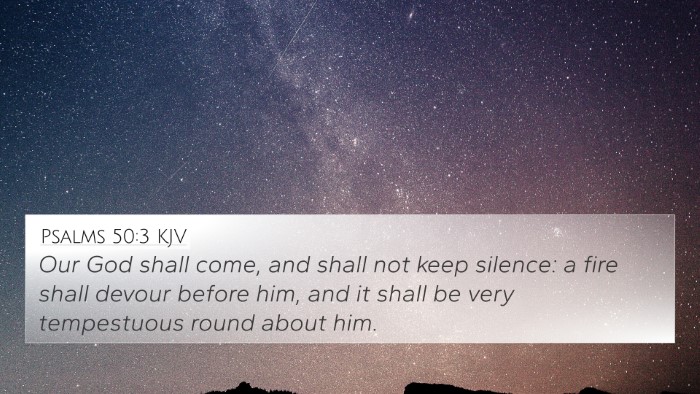Psalms 83:1 states: "Keep not thou silence, O God: hold not thy peace, and be not still, O God."
This verse expresses a profound plea from the psalmist for God to take action amidst troubling circumstances. There's a deep sense of urgency and desperation, as the writer feels an overwhelming silence from God in the face of enemies and distress. Let's examine the meaning through insights from respected public domain commentaries.
Exegesis and Commentary Insights
Matthew Henry's Commentary: Henry reflects on the psalmist's emotional turmoil, indicating that the call for God to "keep not silence" signifies a longing for divine intervention and justice. The silence of God can often be perceived as abandonment during trials. The psalmist implores God not to be silent while adversaries threaten God's people, emphasizing a relational aspect between humanity and the divine.
Albert Barnes' Notes: Barnes reinforces the concept of God’s silence being a cause for great concern. He interprets this verse as a cry for God to actively defend His people and highlight the significance of God's involvement in earthly affairs. Barnes notes that the context involves a coalition of nations conspiring against Israel, which invokes this urgent plea for defense from God.
Adam Clarke’s Commentary: Clarke delves into the emotional state of the psalmist, suggesting that this call for divine silence to cease could indicate feelings of despair among the faithful. He argues that the psalm is a communal lament, where the people collectively seek God's intervention against oppressive forces. Clarke also points out that the repetition in the verse intensifies the plea and desperation inherent in the request.
Thematic Connections and Cross-References
Psalms 83:1 resonates deeply in the context of various scriptures throughout the Bible, illustrating inter-Biblical dialogue. Here are some key cross-references:
- Psalms 22:1: "My God, my God, why hast thou forsaken me?" - Another deep cry expressing feelings of abandonment.
- Psalms 28:1: "Unto thee will I cry, O Lord my rock; be not silent to me." - A direct appeal to God not to remain silent in times of distress.
- Psalms 35:22: "This thou hast seen, O Lord: keep not silence." - This psalm reflects a similar plea for divine recognition and action.
- Psalms silence links to prophetic lamentations, indicative of Israel's dire situations. - Such connections emphasize the recurring theme of divine silence during adversities.
- Isaiah 64:12: "Wilt thou refrain thyself for these things, O Lord? wilt thou hold thy peace, and afflict us very sore?" - A direct parallel invoking concern for God’s silence amid suffering.
- James 5:16: "The effectual fervent prayer of a righteous man availeth much." - Highlights the power and necessity of prayer, echoing the psalmist's earnest plea.
- Revelation 6:10: "How long, O Lord, holy and true, dost thou not judge and avenge our blood..." - This shows a similar yearning for God’s intervention against oppressors.
Importance of Cross-Referencing
Understanding the plea in Psalms 83:1 can greatly benefit from tools for Bible cross-referencing as it opens a comprehensive view of similar themes across scripture. Here are some methods to study these connections:
- Bible Concordance: Utilizing a concordance can help locate verses with similar themes, enhancing the understanding of God's response to cries for help.
- Cross-Reference Bible Study: Engaging in cross-reference studies allows believers to trace recurring themes such as divine silence and intervention.
- Bible Reference Resources: Leveraging reference materials can provide insights into complex theological themes represented in Psalms 83 and related scriptures.
Conclusion
In conclusion, Psalms 83:1 encapsulates the heartfelt supplication of an individual or community seeking divine presence and action in the face of adversity. Through various public domain commentaries, one can appreciate the depth of this plea while utilizing cross-referencing Bible study methods to explore its thematic connections with other scriptures. This verse encourages believers to vocalize their concerns to God and seek a relationship rooted in response and accountability.








